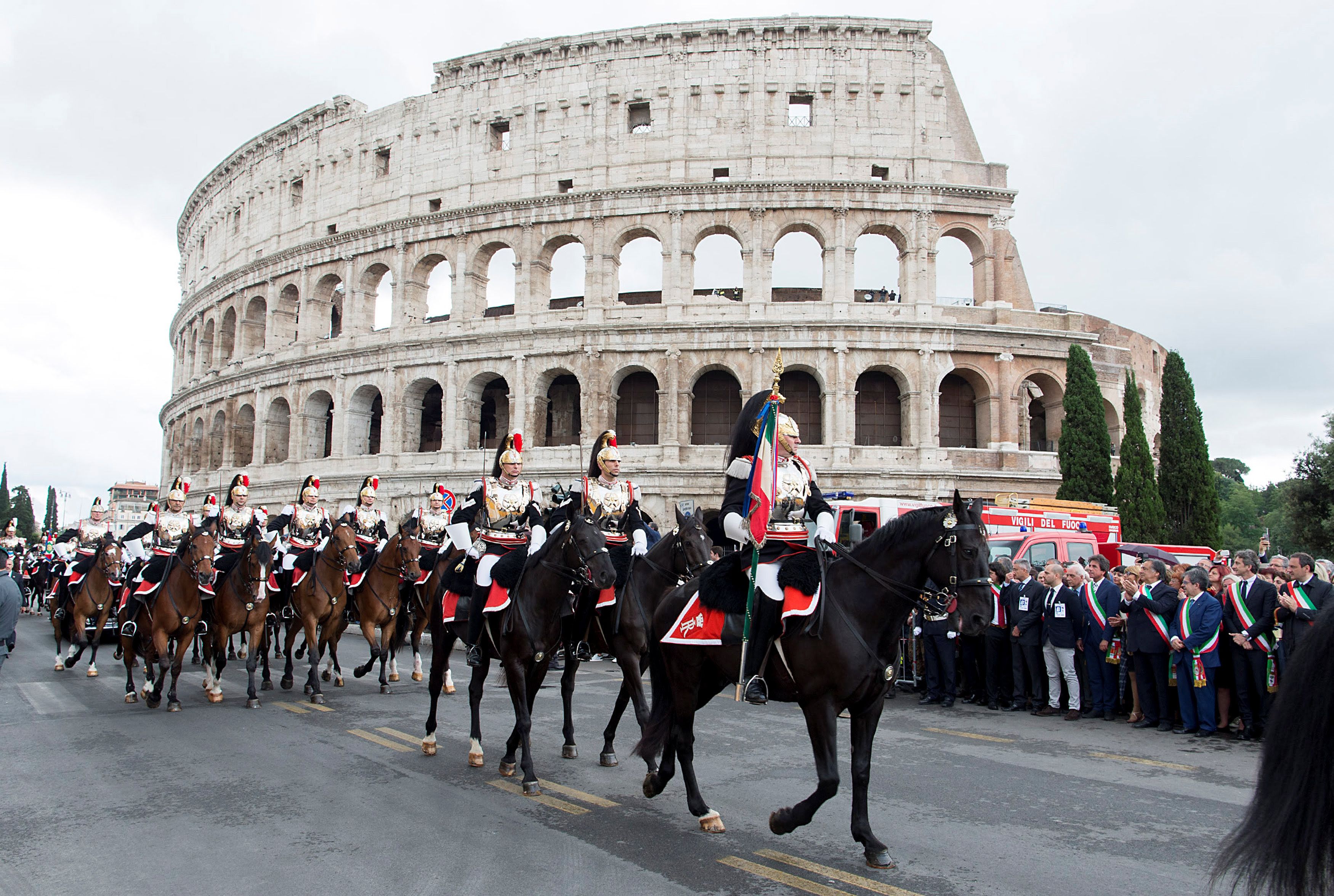August 14, 2018
How do long-dead empires (some longer dead than others) continue to shape politics and prosperity in today’s world?
All Roads that led to Rome lead to prosperity too. It’s generally accepted that building better infrastructure is a way to boost economic growth and prosperity. Politicians love infrastructure investments as ways to boost employment, reward certain constituencies, and plump up support ahead of elections. But a new study suggests that those benefits can last for hundreds, even thousands of years. A team of Danish researchers has found that areas of Europe where the Romans built the most roads are generally more economically prosperous today. The finding is doubly intriguing when you consider that, as the researchers point out, the Romans built roads primarily for military reasons (to facilitate troop movements) rather than economic ones (trade routes weren’t the main consideration.)The P/Russian divide: Roads aren’t the only imperial legacies that continue to show up in Europe today. The imperial border that once divided today’s Poland between the Russian empire and the Prussian empire correlates almost exactly with the electoral map in elections since the return of democracy in 1989. Voters in the Western areas that used to be part of the Prussian empire, which invested more heavily in industrialization and development, have tended to vote for more socially liberal parties, while voters in the historically less developed parts of the country once under Tsarist control have tended to favor more conservative and nationalistic parties.
Have a look at the voting maps of Poland’s last presidential and parliamentary elections. As this wonderful overlay of the old imperial border shows, districts in the former Prussian part of the country supported the centrist Civic Platform while those in the erstwhile Tsarist empire went for the more right-wing Law and Justice party, which is currently in power.
Are there other imperial legacies that continue to shape political affiliations and economic development patterns today? Let us know your thoughts.
More For You
World Central Kitchen staff hand out free soup in a neighbourhood that experiences electricity and heating outages following recent Russian attacks on Ukraine’s civilian infrastructure during subzero temperatures in Kyiv, Ukraine February 3, 2026.
REUTERS/Thomas Peter
1,170: The number of high-rise buildings in Kyiv that were left without heating following a barrage of Russian attacks last night on Ukraine’s capital and its energy facilities, per Kyiv Mayor Vitali Klitschko.
Most Popular
What We’re Watching: US critical minerals summit, Rafah crossing reopens, Border violence in Pakistan
Feb 02, 2026
U.S. President Donald Trump and Japanese Prime Minister Sanae Takaichi hold up signed documents regarding securing the supply of critical minerals and rare earths, at a bilateral meeting at Akasaka Palace in Tokyo, Japan, October 28, 2025.
REUTERS/Evelyn Hockstein
Representatives from the European Union, United Kingdom, Japan, and others will meet in Washington this week to discuss a strategic alliance on critical minerals.
Hard numbers: Large protests in Czechia, UAE-linked firm has large stake in the president’s company, & More
Feb 02, 2026
People take part in a rally in support of Czech President Petr Pavel, organised by Million Moments for Democracy group in reaction to dispute between President Pavel and Czech Foreign Minister and Motorists chair Petr Macinka, in Prague, Czech Republic, February 1, 2026.
REUTERS/Eva Korinkova
80,000: The number of people estimated to be in the streets of Czechia on Sunday to show their support for President Petr Pavel after he blocked the nomination of an environmental minister who performed the Nazi salute and posted Nazi memorabilia.
US President Donald Trump and musician Nicki Minaj hold hands onstage at the US Treasury Department's Trump Accounts Summit, in Washington, D.C., USA, on January 28, 2026.
REUTERS/Kevin Lamarque
The US has started handing $1,000 to the bank accounts of newborn babies. But can policies like this one help boost sagging birthrates in advanced democracies?
© 2025 GZERO Media. All Rights Reserved | A Eurasia Group media company.
